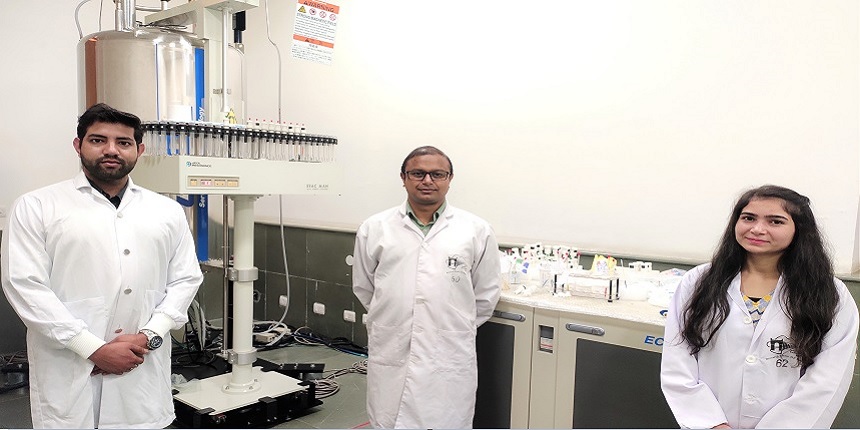IIT researchers develop environmentally safe, cost-efficient catalysts for industrial applications

Press Trust of India | October 8, 2020 | 03:40 PM IST
NEW DELHI: Researchers at the Indian Institute of Technology (IIT), Mandi have developed environmentally safe and cost-efficient catalysts that enable industrial chemical reactions.
A catalyst is a substance that can be added to a reaction to increase the reaction rate without getting consumed in the process. The team has recently developed a heterogeneous catalyst based on easily available carbon, for hydrogenation – a class of reactions extensively used in the chemical industry.
The results by the IIT team has also been published in the prestigious journal, Green Chemistry, published by the Royal Chemical Society. The team was also assisted by scholars at IIT Ropar in the research. "We cannot overestimate the practical importance of catalysis. Almost all synthetic products we use in civilised life now relies on industrial preparations, which in turn make use of catalysts. Catalysts hasten or enable otherwise difficult reactions and help in increasing the yield or rate of formation of the needed products," said Venkata Krishnan, Associate Professor at IIT Mandi.
"With increasing concerns about the environmental effects of industrial chemical reactions, there is a heightened need to develop green catalysts – catalysts that do not add significantly to the environmental pollution issues that are usually associated with industrial processes," he added.
Use of safe hydrogen donor chemical
According to the research team, hydrogenation reactions are commonly used to produce compounds such as aromatic alcohols that are extensively used in perfumes, pharmaceutical products, agrochemicals, and fine chemicals. "Traditional hydrogenation methods involve the reaction between hydrogen gas and various precursors such as acids, aldehydes and ketones, collectively called carbonyl compounds.
More recently, to avoid the exposure and cost issues associated with hydrogen, hydrogenation reactions make use of a safe hydrogen donor chemical," Krishnan said.
"This is where catalysts come in. Hydrogenation catalysts are specialised chemicals that can assist the transfer of hydrogen from cheaper and non-dangerous hydrogen donors to the substrate to be converted to the product of interest. "The catalysts that are now used for hydrogenation reactions involve precious metals such as rhodium, iridium, platinum and ruthenium, which naturally add to the cost of the synthesis method, in addition to having environmental issues. Besides, the recovery of these metal catalysts is difficult," he added.
The professor explained that recently, simple, specialised carbon-based materials have been recognised world-over as easily available, cheaper alternatives to precious metal-based catalysts for a variety of reactions. Such carbon-based materials exhibit significantly high stability and eco-friendly performance.
"Of many carbon-based materials that are being explored for catalysis, the IIT our team has chosen graphitic carbon nitride (GCN) as a metal-free catalyst for the chosen reaction due to its interesting chemical and physical properties. We synthesised heterogeneous catalysts by the chemical oxidation of graphitic carbon nitride (GCN) nanosheets, which results in the generation of water-loving (hydrophilic) carboxyl, hydroxyl and ketonic groups over the GCN surface", explained Krishnan. The team also claims that an added advantage of our catalyst is that it could be easily recovered and reused for several runs without any loss in catalytic activity.
Besides Krishnan, the team included research scholars--Priyanka Choudhary,Ashish Bahuguna and Ajay Kumar from IIT Mandi. CM Nagaraja, Associate Professor, Department of Chemistry, IIT Ropar and his research scholar Sandeep Singh Dhankhar, also contributed to the research.
Also Read:
- IIT Roorkee launches a global network of alumni
- IIT Bombay to teach all classes online for the rest of 2020
Write to us at news@careers360.com.
Follow us for the latest education news on colleges and universities, admission, courses, exams, research, education policies, study abroad and more..
To get in touch, write to us at news@careers360.com.